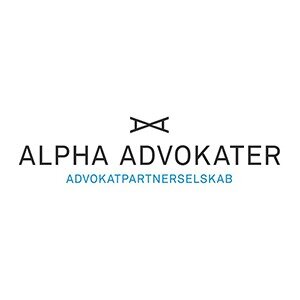Best New Business Formation Lawyers in Denmark
Share your needs with us, get contacted by law firms.
Free. Takes 2 min.
Or refine your search by selecting a city:
List of the best lawyers in Denmark
About New Business Formation Law in Denmark:
New business formation in Denmark involves a specific legal framework designed to support the establishment and growth of businesses. Danish corporate law provides several options for entrepreneurs, including sole proprietorships, partnerships, and incorporated companies such as private limited companies (ApS) and public limited companies (A/S). The process typically involves choosing the appropriate business structure, registering the company with the Danish Business Authority, securing a CVR number, and fulfilling regulatory requirements such as taxation and labor laws.
Why You May Need a Lawyer:
Seeking legal advice during new business formation in Denmark can be beneficial for various reasons. Common situations include the need to:
- Understand the best business structure for tax efficiency and liability protection.
- Navigate regulatory compliance and fulfill registration requirements.
- Negotiate partnerships or shareholder agreements.
- Manage intellectual property rights, IP transfers, or patents.
- Ensure compliance with employee regulations and contractual obligations.
Local Laws Overview:
Key aspects of Danish laws relevant to new business formation include:
- Company Formation: Registration with the Danish Business Authority is mandatory. A CVR number is issued alongside.
- Types of Business Entities: The choice of entity (sole proprietorship, partnership, ApS, A/S) has distinct tax, liability, and operational implications.
- Taxation: Businesses may be subject to various taxes, including VAT, corporate tax, and labor market contributions.
- Reporting Requirements: Annual financial statements must be prepared and submitted to the Danish Business Authority.
- Employment Law: Strict rules govern employee contracts, working hours, and conditions.
Frequently Asked Questions:
1. What are the steps to register a business in Denmark?
The process involves choosing a company structure, registering with the Danish Business Authority, obtaining a CVR number, and setting up a business bank account.
2. How much capital is required to start an ApS company?
An ApS (Anpartsselskab) requires a minimum share capital of DKK 40,000.
3. Can foreigners start a business in Denmark?
Yes, foreigners can start a business, but they must comply with immigration laws, such as obtaining a work and residence permit if necessary.
4. What is the corporate tax rate in Denmark?
The corporate tax rate in Denmark currently stands at 22%.
5. Are there government programs supporting startups?
Yes, programs like Startup Denmark and the Innovation Fund Denmark offer various support initiatives for new ventures.
6. How do I protect my business idea in Denmark?
Protect your intellectual property through patents, trademarks, or design rights. Consider consulting a legal expert for detailed guidance.
7. Is it necessary to have a Danish bank account for my business?
Yes, having a local bank account is recommended for handling finances and taxation purposes effectively.
8. How long does it take to register a business?
The registration process can take a few days to a week, depending on the complexity and accuracy of your documentation.
9. What are the ongoing compliance requirements?
Businesses must regularly report financial statements, adhere to VAT regulations, and comply with employment laws.
10. Do I need a Danish address to start a business?
While not mandatory for all business types, having a registered Danish address is advantageous for credibility and operational efficiency.
Additional Resources:
Consider engaging with the following resources:
- Danish Business Authority: Provides guidelines and tools for business registration and compliance.
- Innovation Fund Denmark: Offers funding and support for innovative startups.
- Startup Denmark: A program offering visas and guidance for foreign entrepreneurs.
- Local Business Chambers: Such as Dansk Erhverv, providing networking and growth support.
- Legal and Accounting Firms: Professional advisory services can ensure compliance and strategic planning.
Next Steps:
If you need legal assistance in new business formation:
- Identify Your Needs: Determine what specific legal assistance or advice you require.
- Conduct Research: Locate specialized business lawyers or legal firms with expertise in Danish corporate law.
- Consultation: Schedule a meeting to discuss your business plans, regulatory needs, and receive tailored guidance.
- Engage Services: Once satisfied with the counsel, engage the lawyer or firm to facilitate the legal aspects of your business setup.
Lawzana helps you find the best lawyers and law firms in Denmark through a curated and pre-screened list of qualified legal professionals. Our platform offers rankings and detailed profiles of attorneys and law firms, allowing you to compare based on practice areas, including New Business Formation, experience, and client feedback.
Each profile includes a description of the firm's areas of practice, client reviews, team members and partners, year of establishment, spoken languages, office locations, contact information, social media presence, and any published articles or resources. Most firms on our platform speak English and are experienced in both local and international legal matters.
Get a quote from top-rated law firms in Denmark — quickly, securely, and without unnecessary hassle.
Disclaimer:
The information provided on this page is for general informational purposes only and does not constitute legal advice. While we strive to ensure the accuracy and relevance of the content, legal information may change over time, and interpretations of the law can vary. You should always consult with a qualified legal professional for advice specific to your situation.
We disclaim all liability for actions taken or not taken based on the content of this page. If you believe any information is incorrect or outdated, please contact us, and we will review and update it where appropriate.
Browse new business formation law firms by city in Denmark
Refine your search by selecting a city.
















